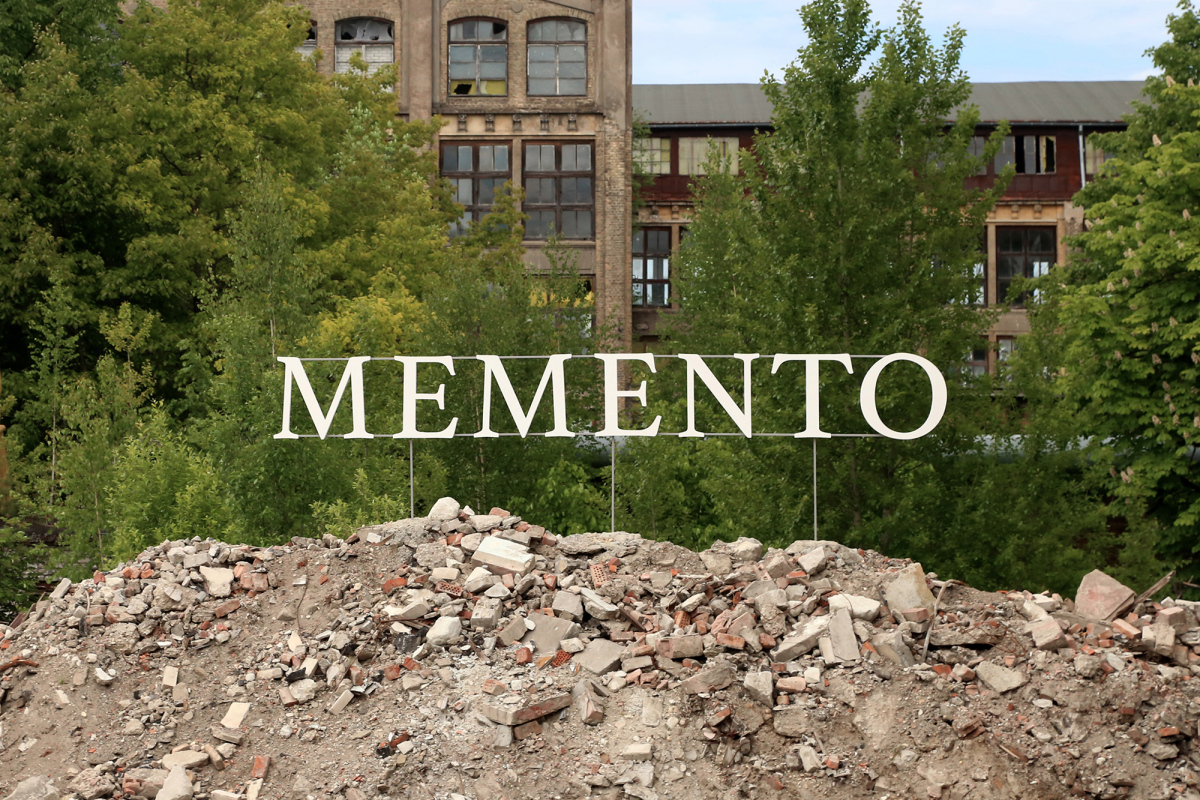-

MEMENTO
Respice post te. Hominem te memento, was created for the Sculpture Quadrennial Rīga 2016 and put on show on the rooftop of an abandoned building on 30 Kungu Street in Rīga. Memento is a new version of the work for the Mobile Museum. The Next Season.
Slaves in Ancient Rome were obliged to whisper these words ‘Respice post te. Hominem te memento’ - “Look behind you, remember that you are human" in a general’s ear upon his return from a successful campaign, so that the general would be reminded of his mortality while basking in the adoration of the crowd. The location of this work, Kungu Street - literally, ‘street of the lords - lends extra semantic weight to the symbolic meaning of the word. Combining the natural scenography of the city – an abandoned Old Rīga house on the verge of collapse and the classical motif of memento mori with the Latin proverb. It’s a gesture reminding one of the changing nature of everything that lives, as well as of death’s everlasting presence in all things.
As most large-scale works placed in a public setting this work was affected by the environment and the weather while it was on show. The work began to disintegrate physically a couple of weeks after the opening, highlighting its symbolic meaning. As birds started pecking at the foam plastic lettering, it began to lose its outline.
The work was destroyed after it was taken down in 2016, but a new version of the work is on show at Mobile Museum. New Season. As we mused upon the return of the work, it became clear it had to be transformed after traversing such time. For this exhibition, a new notice is jutting out from a pile of rubble, with only Memento - Remember the final word, being preserved, allowing the audience to complete the phrase ‘Memento mori’.Metal, foam, paint - 0,8 x 6 x 0, 06 m
The Mobile Museum. The Next Season 2021
Curator: Solvita Krese
Former Bolsevicka textile factory
03 / 06 - 29 / 08 / 2021Photos © Margarita Ogolceva, © Krista Dzudzilo